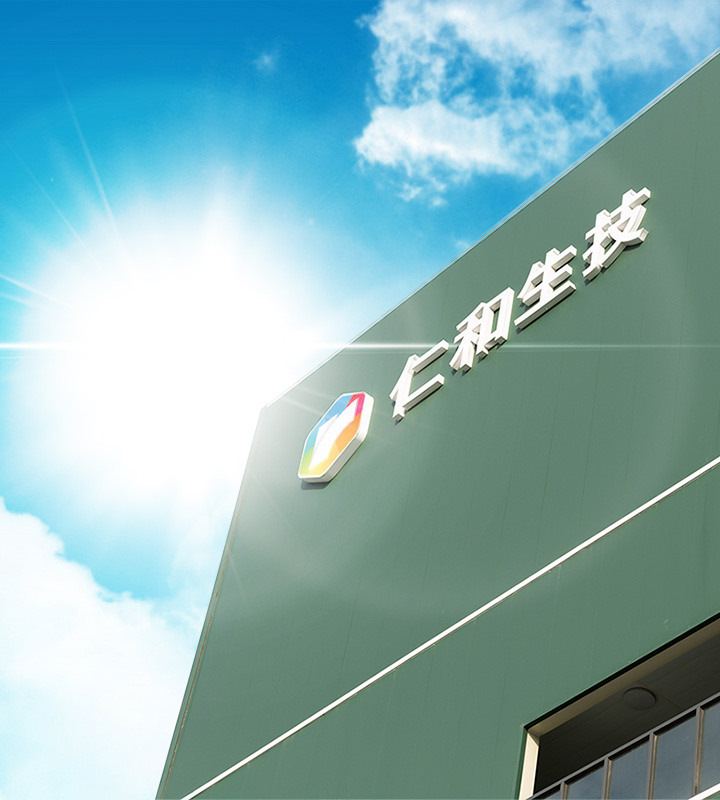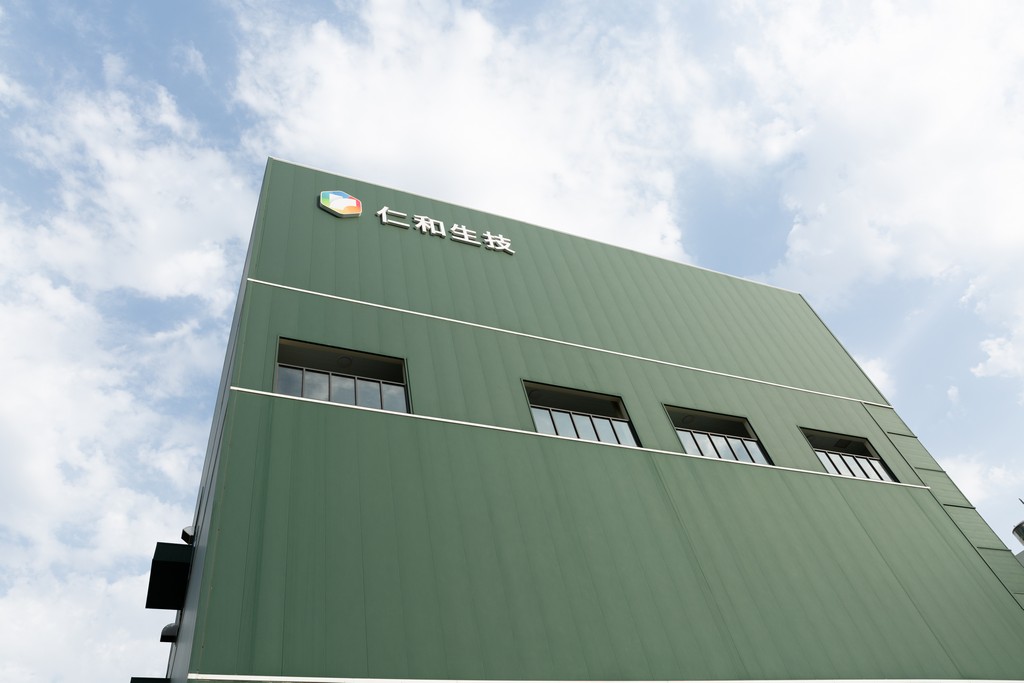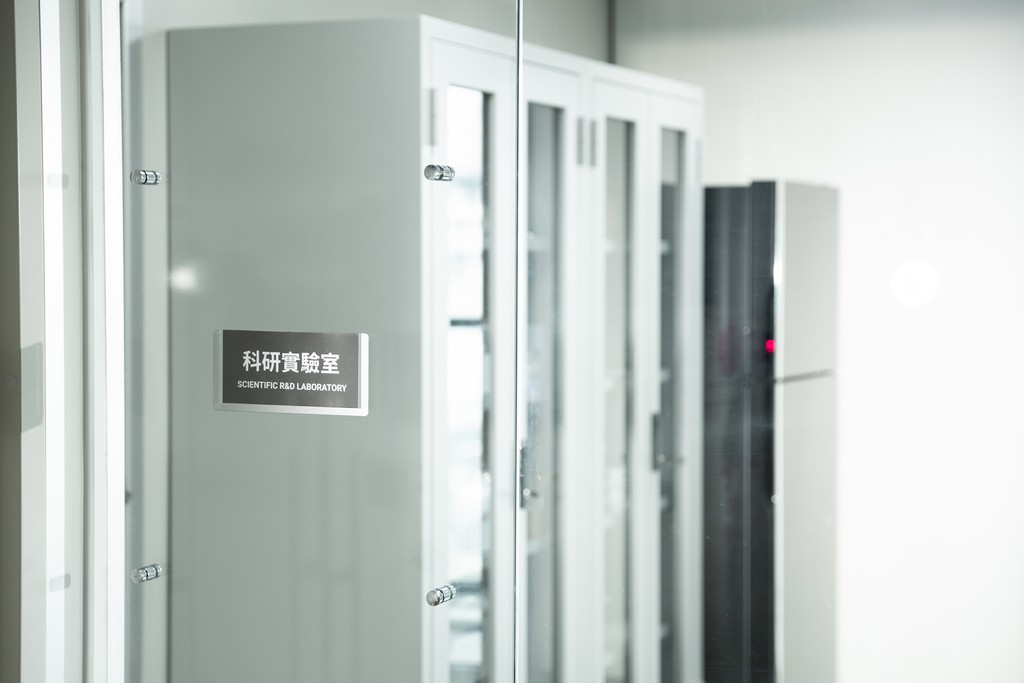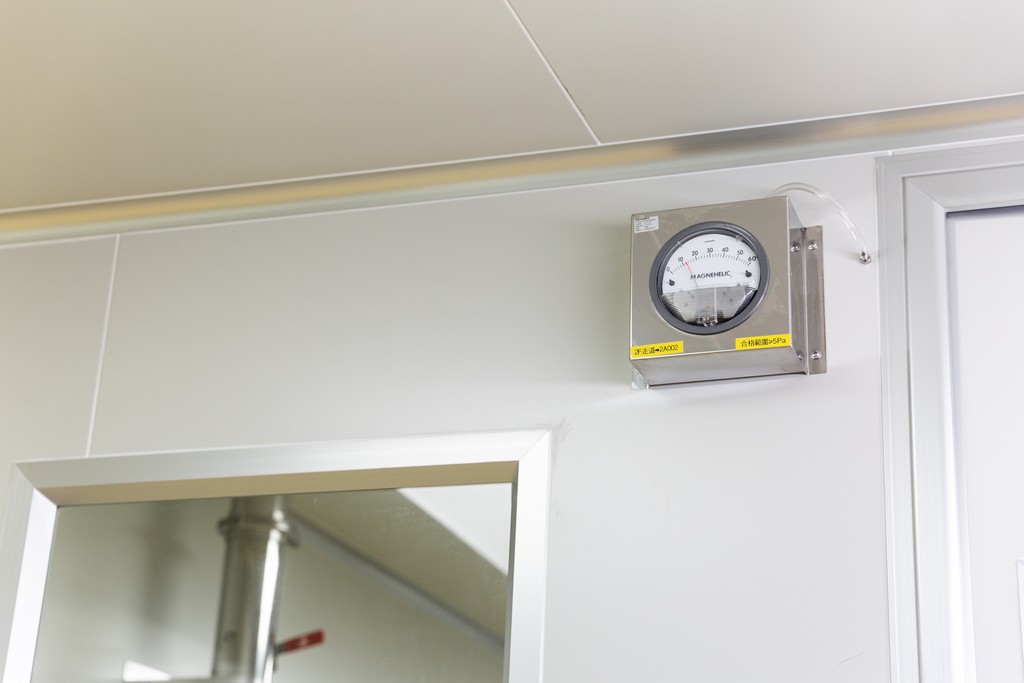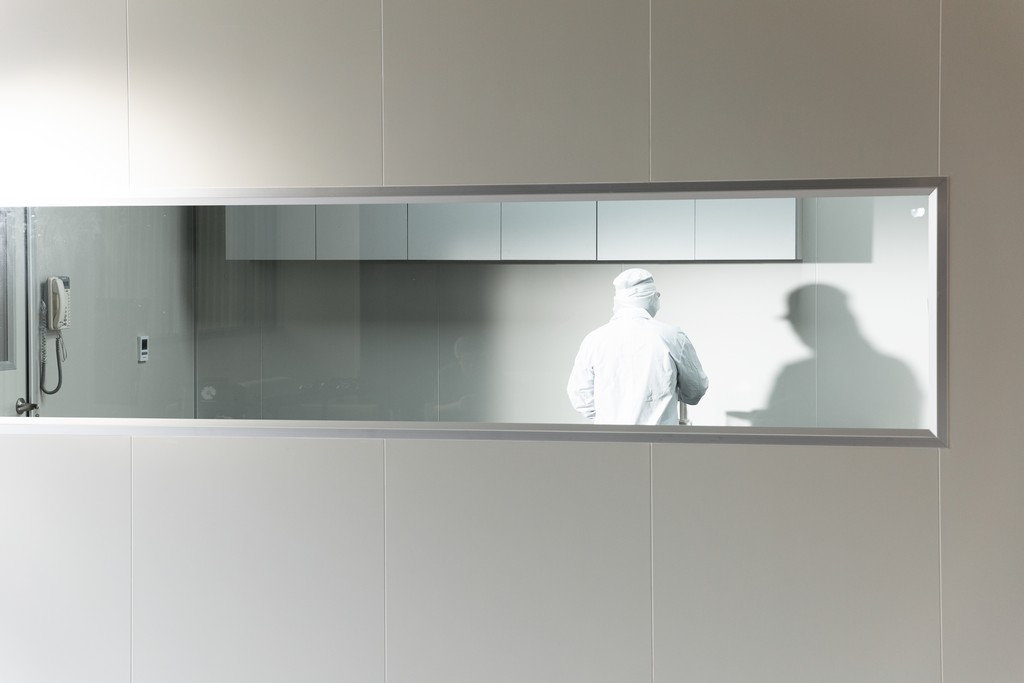Professional factory
Near the Taichung coastal area, you can see a prominently towering green building, adorned with a circular logo symbolizing Renhe's integration of multiple elements.
The factory has been personally planned and established by a factory manager and production supervisors with years of accumulated experience. The preparation process was meticulously handled without relying on others, pouring energy and passion into every detail. This attention to each element allowed for the optimization of every aspect of construction, ensuring that the investment was directed towards high specifications that are in line with Renhe's standards for the building and equipment.
To achieve a high standard of hygiene and consider the long-term future of operations, the factory has been equipped with flooring that meets European Union standards, specifically utilizing a German floor coating system. This flooring is designed to be wear-resistant, slip-resistant, and resistant to chemical erosion, ensuring durability. It prevents wear, corrosion, and cracking from prolonged use, which could lead to work stoppages for repairs, unstable supply, or health concerns.
The cleanroom workspace is designed to achieve an air cleanliness level of 100,000, utilizing a high-efficiency HEPA filtration system to eliminate airborne dust, bacteria, and viruses. This setup helps prevent contamination in operational areas, creating an environment that is unfavorable for microbial growth.
At the same time, strict monitoring of the operational area’s temperature and relative humidity is implemented. Control of air direction and flow, as well as the pressure differentials between the work area and walkways, helps prevent contaminants from entering the clean zones.
Specially designed lighting is used to prevent the entry of particulates, and each operational area is equipped with independent dust collection pipes to ensure cleanliness. This setup not only maintains product quality but also protects the safety and health of the personnel working in these environments.
All personnel entering the facility are required to wear cleanroom garments and specialized shoes, as well as hairnets and masks. They must remove all jewelry and accessories, wash their hands, and disinfect before donning gloves. Upon entry, they pass through an air shower, which uses a high air volume from HEPA filters to blow away surface dust. The air shower is equipped with an interlock system that controls access with automated doors, effectively preventing cross-contamination within the cleanroom environment.
The factory has been personally planned and established by a factory manager and production supervisors with years of accumulated experience. The preparation process was meticulously handled without relying on others, pouring energy and passion into every detail. This attention to each element allowed for the optimization of every aspect of construction, ensuring that the investment was directed towards high specifications that are in line with Renhe's standards for the building and equipment.
To achieve a high standard of hygiene and consider the long-term future of operations, the factory has been equipped with flooring that meets European Union standards, specifically utilizing a German floor coating system. This flooring is designed to be wear-resistant, slip-resistant, and resistant to chemical erosion, ensuring durability. It prevents wear, corrosion, and cracking from prolonged use, which could lead to work stoppages for repairs, unstable supply, or health concerns.
The cleanroom workspace is designed to achieve an air cleanliness level of 100,000, utilizing a high-efficiency HEPA filtration system to eliminate airborne dust, bacteria, and viruses. This setup helps prevent contamination in operational areas, creating an environment that is unfavorable for microbial growth.
At the same time, strict monitoring of the operational area’s temperature and relative humidity is implemented. Control of air direction and flow, as well as the pressure differentials between the work area and walkways, helps prevent contaminants from entering the clean zones.
Specially designed lighting is used to prevent the entry of particulates, and each operational area is equipped with independent dust collection pipes to ensure cleanliness. This setup not only maintains product quality but also protects the safety and health of the personnel working in these environments.
All personnel entering the facility are required to wear cleanroom garments and specialized shoes, as well as hairnets and masks. They must remove all jewelry and accessories, wash their hands, and disinfect before donning gloves. Upon entry, they pass through an air shower, which uses a high air volume from HEPA filters to blow away surface dust. The air shower is equipped with an interlock system that controls access with automated doors, effectively preventing cross-contamination within the cleanroom environment.

